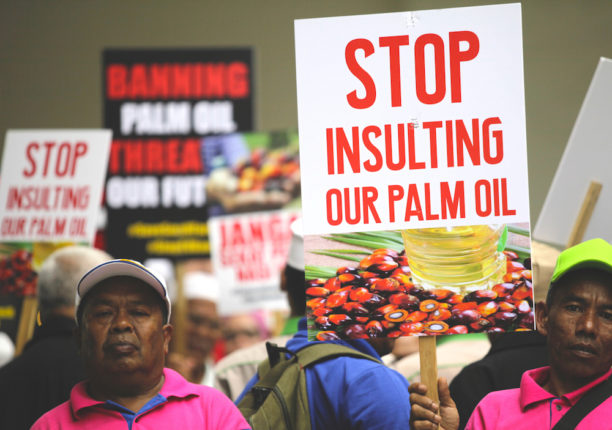
By passing the RED II Directive the European Union has once again shown its hypocrisy. While MEPs and Lobbies cheer, EU citizens and small businesses will pay the price
The EU bans the use of palm oil in biofuels by 2020 but saves all the other vegetable oils, such as soybean, sunflower and rapeseed. These crops are well represented in the EP unlike the millions of Asian farmers and small holders. MEPs could careless about Asian small holders as well as they do not care about forests or sustainability. They only want to protect old European lobbies that represent unsustainable businesses.
By banning palm oil Europe betrays its commitment to free trade and becomes the most protectionist region in the world. By banning palm oil the EU starts a trade war that will certainly have dangerous consequences for European export. European Citizens and Entrepreneurs will pay the price of this silly choice.
Few date are sufficient to explain the nonsense move carried forward by European MEPs.
Indonesia, Malaysia and Thailand are among the leading producers and exporters of palm oil in the world. Their trade relations with the European Union can be summarized as follows for the year 2016:
EU imports from Malaysia in 2016: €22 billion
EU exports to Malaysia in 2016: €13.2 billion
EU exports: €10 billion
EU imports: €15.5 billion
Bilateral trade in services between the EU and Indonesia in 2014: €6 billion
Total bilateral trade between the EU and Thailand in 2015: €32.9 billion
Thailand is the EU’s third-largest trading partner in ASEAN
Palm oil related jobs : 93.620
GDP growth: 6,42 billion €
After the RED II vote, more than 90 thousand jobs are at risk and 6,42 billion euros of GDP could be lost.
The three countries are united against the European Union. Palm oil is in fact an important commodity on which their economies and their development are based. Thanks to innovation and research, the oil palm cultivation has reached high standards of sustainability, with an increasing trend in sustainable supply chains.
Indonesia, Malaysia and Thailand could decide to boycott European goods and services: 350 million consumers and almost 100 billion euros of market value.
